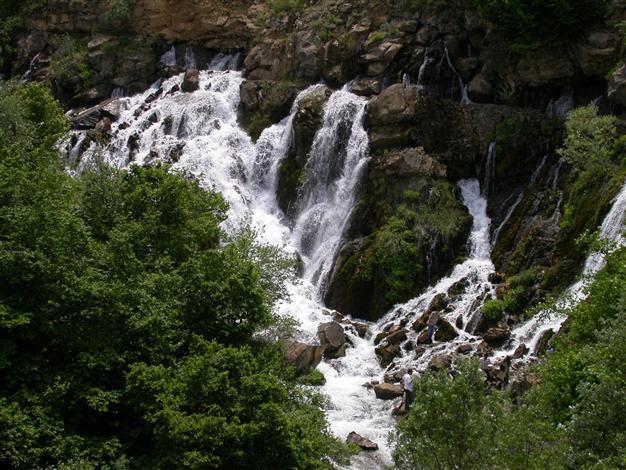Hydroelectric plant project to wipe out two waterfalls in Black Sea province
Serkan OCAK ORDU - Radikal
 One of the dozens of hydroelectric plants (HES) that are being built across the Black Sea will wipe out two waterfalls amid controversy about a decision that found the preparation of an environmental assessment report (ÇED) for the project unnecessary.
One of the dozens of hydroelectric plants (HES) that are being built across the Black Sea will wipe out two waterfalls amid controversy about a decision that found the preparation of an environmental assessment report (ÇED) for the project unnecessary. Works to build the Selimiye HES that will be located on the Çukurköy River in the province of Ordu were recently launched after a long legal process that ended through the Council of State’s approval of a non-competence ruling issued by an administrative court.
The plant, which will produce less than 1 MW of electricity, will in return dry out the Kurşuncal waterfall, which is the most important of the province with a height of 100 meters. The Çiseli waterfall, also located nearby, is also threatened of drying out following its completion.
For the moment, only trees have been cut, but representatives of local environmental associations say they lack the necessary support to prevent the construction from starting.
“Last week, we sent a petition to the Environment and Urbanism provincial directorate of the Samsun province, asking whether the two waterfalls were under protection or not. Fortunately, we can draw public attention as the region is a touristic area,” said Gül Ersan from the Platform for the Protection of Nature and Living Areas in Ordu.
Constructions continue despite court rulings
Ersan said one of the biggest difficulties they were facing was that in many cases, construction would continue despite court orders for their suspension, including the Atilla I and II plants in the Fatsa district, as well as the Çambası dam and Darıca plant in the Çambaşı highlands, one of the provinces’ most important touristic zones.
She added that companies would sometimes build tunnels or bridges, which are either not in line or not permitted in the environmental reports.
“Our complaints and the lawsuits are often ineffective. The only power that remains that can stop this destruction is the locals. But it is not easy for them to stand up in front of the construction machines, seconded by security forces,” she said.
Dozens of HES projects are ongoing, while scores have already been built on small streams across the country, jeopardizing the environment.
A forum will be organized in the village of Boğazkere in the southern province of Mersin on Aug. 16-17 by local activists and with the participation of legal experts to plan concerted actions in the country.
















